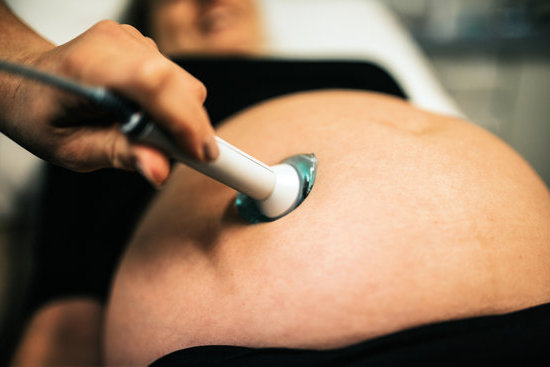How does nutrition impact fertility, pregnancy, and birth? The link between diet and reproductive health has long been recognized, with research suggesting that certain nutrients play a crucial role in conception, fetal development, and birth outcomes. In this article, we will explore the intricate relationship between nutrition and the various stages of reproduction, from fertility to pregnancy and birth.
The impact of nutrition on fertility is a key area of interest for many individuals trying to conceive. Research has shown that certain dietary patterns and nutrient deficiencies can affect hormonal balance, ovulation, and sperm quality, all of which are essential for successful conception. Understanding how specific nutrients influence fertility can provide valuable insights for couples looking to optimize their chances of getting pregnant.
During pregnancy, the need for proper nutrition becomes even more critical as a woman’s body goes through significant changes to support the developing fetus. Meeting the increased demand for essential nutrients such as folic acid, iron, and omega-3 fatty acids is vital for ensuring a healthy pregnancy and reducing the risk of complications.
By exploring the role of nutrition in each stage of reproduction, we can gain a better understanding of how diet influences fertility, pregnancy, and birth outcomes.
The Impact of Nutrition on Fertility
Nutrition plays a crucial role in fertility, as it can impact both men and women’s ability to conceive. A balanced diet that includes essential nutrients such as vitamins, minerals, and antioxidants can improve reproductive health and increase the chances of successful conception.
For women, maintaining a healthy weight through proper nutrition is important for hormone balance, regular menstrual cycles, and overall fertility. Additionally, research has shown that specific dietary choices can affect ovulation and egg production, influencing a woman’s fertility.
Men’s Fertility and Diet
While much of the focus on fertility often centers around women, it is important to acknowledge the impact of nutrition on men’s reproductive health. Studies have suggested that certain nutrients, such as vitamin C, vitamin E, zinc, and folate, play a role in sperm quality and motility. Consequently, promoting a well-rounded diet for men that includes these vital nutrients can contribute to better sperm health and increase the likelihood of conception.
The Role of Weight and Nutrition
Maintaining a healthy weight through proper nutrition is essential for both men and women when it comes to fertility. Being underweight or overweight can disrupt hormone levels and interfere with reproductive function. Therefore, focusing on a balanced diet that encompasses all essential nutrients while achieving a healthy weight can positively impact fertility in both genders.
When considering
Nutritional Needs During Pregnancy
During pregnancy, a woman’s nutritional needs change significantly as her body works to support the growth and development of the baby. It is important for expectant mothers to understand how their diet impacts not only their own health but also the health of their growing fetus. The old saying “eating for two” comes with a lot of responsibility, as the quality of nutrients consumed can greatly impact both the pregnancy experience and the baby’s overall health.
Key Nutrients for Pregnancy
A well-balanced diet during pregnancy should include essential nutrients such as folic acid, iron, calcium, vitamin D, and protein. Folic acid is vital in preventing neural tube defects in early pregnancy, while iron helps support both the mother’s increased blood volume and the baby’s development. Calcium and Vitamin D are critical for bone health and development, while protein is essential for cell growth and repair.
Managing Weight Gain
Pregnancy often brings about weight gain, which is natural as the body prepares for childbirth. However, it’s important to manage weight gain by ensuring that it comes from nutrient-dense foods rather than empty calories. By focusing on whole grains, lean proteins, fruits, vegetables, and healthy fats, pregnant women can maintain a healthy weight during pregnancy while still meeting their increased nutritional needs.
The Impact of Maternal Nutrition on Infant Health
Research has shown that maternal nutrition has a direct impact on infant health not only during pregnancy but also later in life. A mother’s diet can influence her child’s risk of chronic diseases, obesity, and developmental issues. By understanding how nutrition impacts fertility, pregnancy, and birth outcomes, women can make informed decisions about their diets before and during pregnancy to support both their own health and that of their future children.
The Role of Nutrition in Fetal Development
During pregnancy, proper nutrition is essential for the overall development and health of the fetus. The nutrients consumed by the mother play a crucial role in supporting the growth and development of the baby, making prenatal nutrition a critical aspect of a healthy pregnancy. Here are some key points to consider about the importance of prenatal nutrition:
- Folic Acid: One of the most important nutrients for fetal development is folic acid. It plays a vital role in preventing neural tube defects in the baby, particularly during early pregnancy. It is often recommended that women take a folic acid supplement before conception and during the early stages of pregnancy.
- Omega-3 Fatty Acids: These essential fatty acids are important for brain and eye development in the baby. Sources of omega-3s include fatty fish, flaxseeds, and walnuts. Including these foods in the mother’s diet can contribute to a healthy fetal development.
- Iron: Iron is essential for carrying oxygen to the baby through the placenta. Pregnant women need more iron to support their increased blood volume and to ensure proper oxygenation of the fetus. Iron-rich foods such as lean meats, beans, and leafy greens should be part of a pregnant woman’s diet.
Overall, ensuring adequate intake of these key nutrients can positively impact fetal development, contributing to a healthy pregnancy and birth. This further emphasizes how crucial maternal nutrition is not only for sustaining pregnancy but also for promoting optimal growth and development of the unborn child.
Research continues to show that maternal diet has a profound impact on various aspects of infant health, including cognitive function, immune system development, and even long-term disease risk. Therefore, paying close attention to prenatal nutrition is essential for promoting lifelong health outcomes in offspring – underscoring that what mothers eat during pregnancy matters not only for themselves but also for their babies’ future well-being.
Ultimately, understanding and prioritizing prenatal nutrition can help ensure that expectant mothers are providing their babies with all necessary building blocks for healthy growth and development while also supporting their own well-being throughout this transformative experience. By maintaining a nutritious diet throughout pregnancy, mothers can help set their children up for optimal health from their very first stages of life.
The Connection Between Nutrition and Birth Outcomes
During labor and delivery, the mother’s body undergoes tremendous physical stress, and proper nutrition plays a crucial role in supporting a healthy and safe childbirth. Good nutrition can impact birth outcomes in various ways, from promoting overall maternal health to ensuring the baby’s development and well-being.
One way in which nutrition influences birth outcomes is through its effect on the mother’s energy levels and overall health. Labor and delivery can be physically demanding, requiring strength and endurance.
A well-balanced diet rich in essential nutrients such as carbohydrates, proteins, healthy fats, vitamins, and minerals can provide the necessary energy for the mother to endure labor and delivery. Additionally, maintaining good nutritional status can help prevent complications such as fatigue, weakness, or even potential medical issues that may arise during childbirth.
Furthermore, maternal nutrition can also affect the baby’s health and development during labor and delivery. Adequate intake of key nutrients such as folic acid, iron, calcium, and omega-3 fatty acids can support fetal growth and development while reducing the risk of certain birth defects.
For example, folate is essential for preventing neural tube defects in newborns while iron supports the production of red blood cells needed for both the mother and baby. Therefore, ensuring proper nutrient intake during pregnancy is vital for a healthy labor and successful delivery.
Common Nutritional Deficiencies in Pregnancy
During the course of pregnancy, a woman’s body goes through numerous changes as it works to support the growth and development of a baby. These changes can lead to an increased demand for certain nutrients, making it essential for expectant mothers to pay close attention to their diet in order to prevent nutritional deficiencies that could potentially impact the health of both mother and child. Two of the most common nutritional deficiencies during pregnancy are iron and folic acid.
Iron is crucial during pregnancy as it helps deliver oxygen to the growing fetus. Pregnant women need twice as much iron compared to women who are not pregnant, yet studies show that up to 50% of pregnant women worldwide suffer from iron deficiency anemia.
This deficiency can lead to complications such as premature birth, low birth weight, and even maternal mortality. It is important for pregnant women to consume iron-rich foods such as lean meats, poultry, fish, and legumes, or take iron supplements if recommended by their healthcare provider.
Folic acid is another essential nutrient during pregnancy as it plays a vital role in preventing neural tube defects in babies. The CDC recommends that women of childbearing age consume 400 micrograms (mcg) of folic acid daily, both through a healthy diet and supplements if necessary.
Despite this recommendation, studies have shown that many women enter pregnancy with low levels of folic acid, emphasizing the need for increased awareness about its importance. Ensuring adequate intake of folic acid before and during early pregnancy is key in reducing the risk of these birth defects.
| Nutrient | Impact on Pregnancy |
|---|---|
| Iron | Iron deficiency can lead to premature birth, low birth weight, and maternal mortality. |
| Folic Acid | Folic acid helps prevent neural tube defects in babies when consumed before and during early pregnancy. |
The Impact of Maternal Nutrition on Infant Health
Maternal nutrition plays a crucial role in the long-term health of infants. The prenatal diet of a mother can have lasting effects on the health and development of her child, even into adulthood. Here are some key ways in which maternal nutrition impacts infant health:
1. Cognitive Development: A diet rich in essential nutrients such as omega-3 fatty acids, iron, and iodine can support the cognitive development of the baby. These nutrients are vital for brain development and can influence learning abilities and academic performance later in life.
2. Risk of Chronic Diseases: The nutritional status of the mother during pregnancy can impact the risk of chronic diseases in her child, such as obesity, diabetes, and heart disease. A balanced diet that includes plenty of fruits, vegetables, whole grains, and lean protein can help reduce the risk of these conditions.
3. Immune Function: Adequate intake of vitamins and minerals during pregnancy is essential for building a strong immune system in infants. Maternal deficiencies in nutrients like vitamin D, vitamin C, and zinc can compromise the baby’s immune function and make them more susceptible to infections.
In order to optimize infant health through maternal nutrition, it is important for expectant mothers to focus on consuming a well-balanced diet that meets their specific nutritional needs during pregnancy. This means incorporating a variety of nutrient-dense foods into their meals and addressing any potential deficiencies through supplementation under medical supervision.
Overall, understanding how maternal nutrition impacts infant health is essential for promoting long-term well-being from conception through childbirth and beyond. By prioritizing a healthy diet before and during pregnancy, women can positively influence the future health outcomes of their children.
Tips for Optimizing Nutrition for Fertility, Pregnancy, and Birth
In conclusion, it is clear that nutrition plays a crucial role in fertility, pregnancy, and birth. The impact of diet on these stages of reproduction and development cannot be overstated. From the moment a couple decides to conceive, to the birth and beyond, the right nutrition can make a significant difference in the outcome. Understanding how does nutrition impact fertility pregnancy and birth is essential for anyone planning to start a family or expecting a child.
Research has consistently shown that proper nutrition is linked to improved fertility for both men and women. A well-balanced diet can increase the chances of conception while also supporting a healthy pregnancy.
During pregnancy, maintaining adequate levels of essential nutrients like folic acid, iron, and calcium is vital for fetal development and overall maternal health. Furthermore, the long-term impact of maternal nutrition on infant health cannot be overlooked; the food choices made during pregnancy can influence a child’s future health outcomes.
To optimize nutrition for fertility, pregnancy, and birth, it is important to focus on consuming a variety of nutrient-dense foods rather than relying heavily on supplements alone. Prioritizing fresh fruits and vegetables, whole grains, lean proteins, and healthy fats can help ensure that both parents are providing their bodies with the nutrients needed for reproductive health.
Consulting with a healthcare provider or registered dietitian can also provide personalized guidance based on individual needs and factors such as pre-existing conditions or dietary restrictions. By taking proactive steps to prioritize nutrition before and during pregnancy, individuals can set the stage for healthier fertility outcomes and better overall maternal and infant health.
Frequently Asked Questions
How Does Nutrition Affect Fertility?
Nutrition can have a significant impact on fertility. A balanced diet that includes plenty of fruits, vegetables, whole grains, and lean protein can help regulate hormones and improve overall reproductive health. On the other hand, excessive consumption of processed foods, sugary drinks, and unhealthy fats can lead to hormonal imbalances and decreased fertility.
What Are the Factors Affecting Fertility Pregnancy and Birth?
Several factors can affect fertility, pregnancy, and birth. Age is one of the most critical factors, as fertility declines with age in both men and women. Other factors include obesity, smoking, alcohol consumption, sexually transmitted infections, and certain medical conditions such as diabetes or polycystic ovary syndrome. Additionally, environmental factors and stress can also play a role in affecting fertility.
What Are the Nutritional Causes of Infertility?
There are several nutritional causes of infertility that are worth considering. For instance, being underweight or overweight can impact hormone balance and ovulation in women. Deficiencies in key nutrients like folic acid, vitamin D, iron, and omega-3 fatty acids can also contribute to infertility.
Moreover, excessive caffeine intake has been linked to reduced fertility in both men and women. It’s important for individuals struggling with infertility to consider their nutritional intake as part of their overall treatment plan.

Welcome to my fertility blog. This is a space where I will be sharing my experiences as I navigate through the world of fertility treatments, as well as provide information and resources about fertility and pregnancy.





